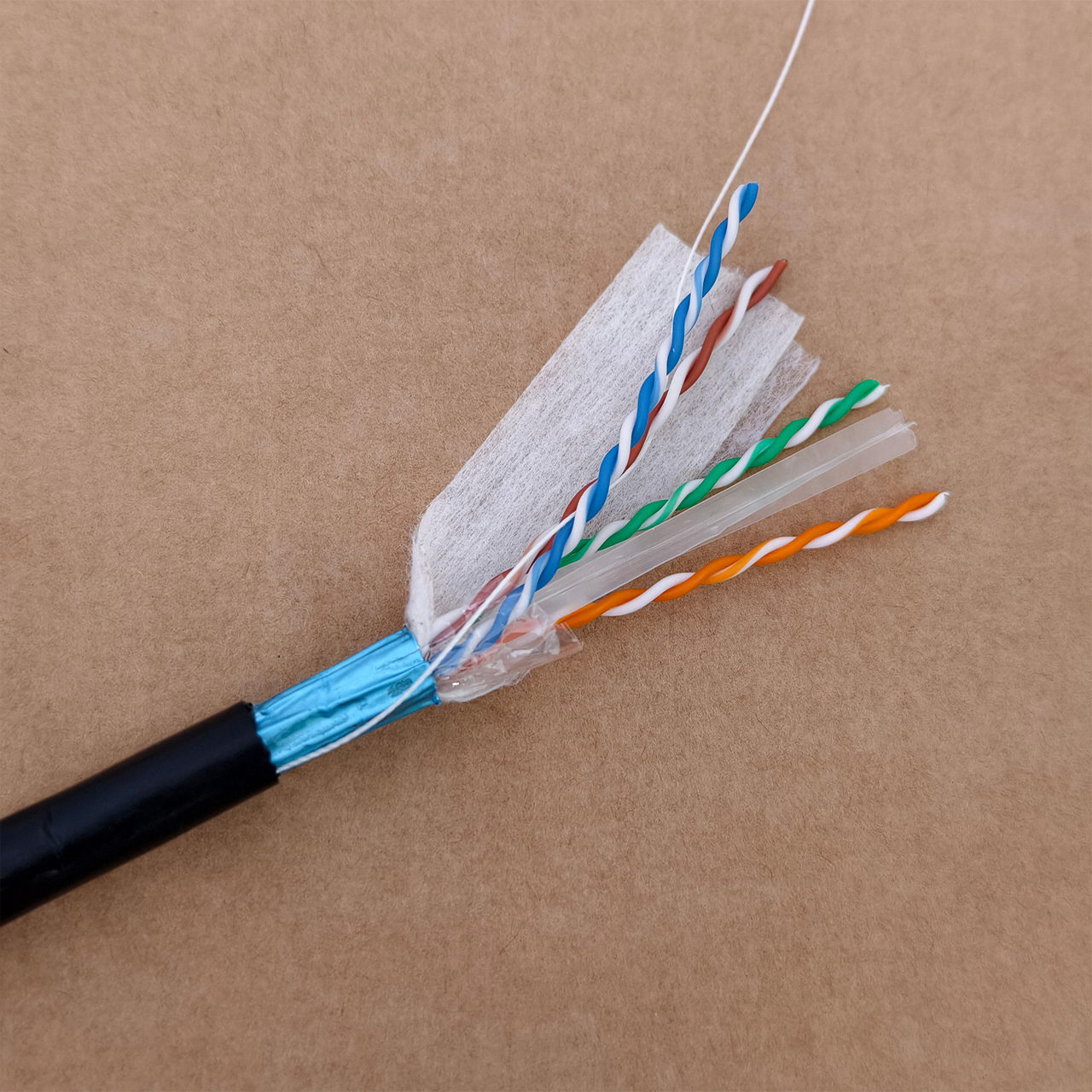Introduction to UTP Cable Performance Testing
Unshielded Twisted Pair (UTP) cables are a fundamental component in modern data transmission systems. Manufacturers ensure these cables meet stringent performance standards through comprehensive testing processes. Various test types assess the cable's ability to handle data transfer efficiently and resist environmental interferences. With data demands increasing globally, particularly in regions like China where wholesale distribution and suppliers play a vital role, UTP cables must adhere to high-quality benchmarks.
Manufacturing Standards and Test Protocols
International Standards for UTP Cables
UTP cables must conform to international standards like the TIA/EIA-568, which define the electrical and physical characteristics necessary for optimal performance. These standards ensure consistency across manufacturers, particularly important for suppliers operating wholesale, such as those in China, whose products must be reliable and standardized across different markets.
Initial Quality Checks
The initial phase of testing involves physical inspection to ensure the correct assembly of the cable. This includes examining the twisted pairs for uniformity in twist rate, which is crucial for minimizing crosstalk and maintaining signal integrity over long distances.
Physical and Mechanical Testing
Durability Tests
Durability testing is crucial to understanding how UTP cables will perform under mechanical stress. Tests include bending, tensile strength, and flexing to simulate real-world usage conditions. This is essential for wholesale distributors who need assurance that the cables they supply are robust enough for diverse environments.
Insulation and Sheath Integrity
Insulation testing ensures that the materials used can withstand electrical and thermal stress. The sheath's integrity is also tested to confirm its ability to protect the internal conductors from physical damage, which is critical in harsh environments.
Electrical Performance Measurements
Attenuation and Signal Loss
Attenuation measures signal loss over the length of the cable. It is expressed in decibels (dB) and is a crucial parameter for manufacturers and suppliers to consider, especially in high-frequency applications. High-quality UTP cables typically have lower attenuation, indicating superior performance over extended distances.
Impedance and Return Loss
Impedance testing ensures that the cable maintains a consistent impedance level, reducing signal distortion. Return loss relates to the amount of signal reflected back to the source, with lower values indicating better performance. Both are critical in assessing the cable’s ability to handle data at designated speeds and frequencies effectively.
Electromagnetic Interference (EMI) Testing
Shielding Effectiveness
Although UTP cables are unshielded, they must resist electromagnetic interference from external sources. Testing involves measuring EMI across various frequencies to ensure cables can maintain signal integrity without interference, a vital consideration for suppliers distributing large volumes of cables.
Cable Certification and Compliance Testing
Certification Processes
Certification ensures that UTP cables meet specific performance standards before reaching the market. This process often involves third-party testing organizations that provide unbiased assessments, which are essential for suppliers seeking to distribute certified cables globally, including to wholesale markets in China.
Compliance with Regional Regulations
In addition to international standards, UTP cables must comply with regional regulations, which differ across global markets. These compliance tests verify that cables meet all necessary safety and performance requirements, giving manufacturers and suppliers confidence in their product quality.
Advanced Testing Tools and Technologies
Use of Network Analyzers
Network analyzers provide comprehensive assessments of UTP cable performance, measuring parameters like speed, latency, and signal quality. These tools are invaluable for manufacturers aiming to optimize cable designs and for suppliers who need to guarantee performance in diverse network environments.
Integration of Automated Testing
Automated testing technologies streamline the testing process, allowing for extensive and repeatable testing campaigns that enhance quality control. This is particularly beneficial for manufacturers in high-output markets like China, where efficiencies in production and testing can significantly affect competitiveness.
Environmental and Aging Tests
Temperature and Humidity Testing
Environmental tests assess how UTP cables perform under varying temperature and humidity conditions. These tests simulate the extremes cables might face in different geographic regions, ensuring suppliers that their products will perform consistently worldwide.
Aging and Longevity Assessment
Aging tests simulate long-term usage scenarios to predict a cable’s lifespan. This testing is crucial for wholesale operations, ensuring that suppliers provide products that maintain quality over time, reducing the likelihood of premature failure in end-user applications.
Fault Identification and Troubleshooting
Identifying Common Faults
Advanced testing techniques help identify common issues such as cross talk, signal reflection, and broken pairs. Early detection of these faults is crucial for maintaining high-quality production standards and satisfying the demands of suppliers requiring bulk shipments.
Troubleshooting Techniques
Manufacturers employ various troubleshooting techniques to rectify identified faults, using specialized equipment for precise diagnostics and repairs. This ensures that only cables meeting stringent quality criteria reach the market, safeguarding the reputations of Chinese suppliers distributing wholesale products.
Future Trends in UTP Cable Testing
Emerging Testing Technologies
As data speeds and network demands increase, new testing technologies are being developed to provide even more accurate and reliable assessments of UTP cable performance. Emerging trends include real-time testing systems and predictive analytics, which will enhance the capability of manufacturers to deliver top-performing cables to suppliers.
Focus on Sustainable Testing
There is a growing emphasis on sustainable testing practices, which aim to reduce waste and energy consumption during the manufacturing process. This aligns with global trends towards sustainability and is particularly relevant for wholesale suppliers in regions like China, where environmental regulations are becoming increasingly stringent.
Aston Cable Provide Solutions
At Aston Cable, we offer comprehensive solutions for UTP cable testing, ensuring our products meet the highest performance standards. Our state-of-the-art testing facilities and adherence to international norms guarantee that our cables deliver exceptional data transfer rates and reliability. We partner with wholesale channels and suppliers, particularly in dynamic markets like China, to distribute our quality-assured products widely. Whether you require cables for residential, commercial, or industrial applications, Aston Cable's rigorous testing processes ensure optimal performance and longevity for all your cabling needs.
User hot search: utp ethernet cable
Post time: 2025-07-24 12:27:02





